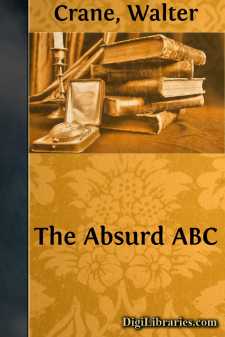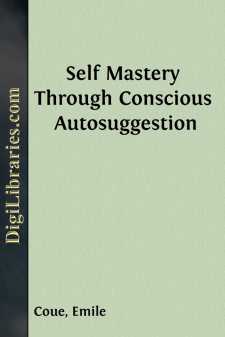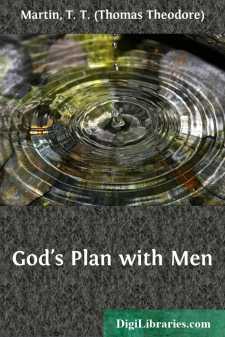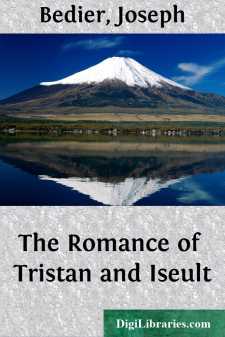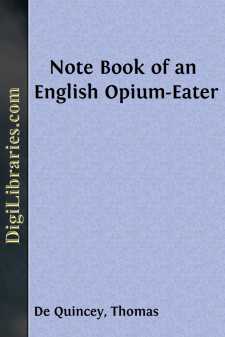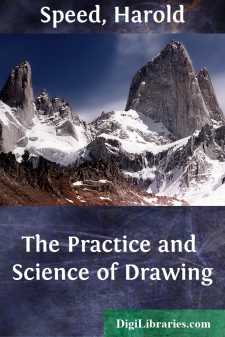Non-Classifiable
- Non-Classifiable 1768
Non-Classifiable Books
Sort by:
by:
Richard Aldrich
MY PURPOSE My purpose is to discuss simply, intelligibly, yet from a scientific point of view, the sensations known to us in singing, and exactly ascertained in my experience, by the expressions "singing open," "covered," "dark," "nasal," "in the head," or "in the neck," "forward," or "back." These expressions correspond to our sensations...
more...
by:
Walter Crane
A for the APPLEor Alphabet pie,Which all get a slice of.Come taste it & try. B is the BABYwho gave Mr BuntingFull many a long day'srabbit skin hunting. C for the CATthat played on the fiddle,When cows jumped higher than'Heigh Diddle Diddle!' D for the DAMEwith her pig at the stile,'Tis said they got over,but not yet a while. E for the Englishman,ready to make fastThe giant who...
more...
CHAPTER I. Never perhaps in modern times had a country sunk so low as France, when, in the year 1420, the treaty of Troyes was signed. Henry V. of England had made himself master of nearly the whole kingdom; and although the treaty only conferred the title of Regent of France on the English sovereign during the lifetime of the imbecile Charles VI., Henry was assured in the near future of the full...
more...
When Senator Al Gore was evangelizing support for his visionary National Research and Education Network bill, he often pointed to the many benefits of a high-speed, multi-lane, multi-level data superhighway. Some of these included: — collaborating research teams, physically distant from each other, working on shared projects via high speed computer networks. Some of these "grand challenges"...
more...
by:
Emile Coue
SELF MASTERY THROUGH CONSCIOUS AUTOSUGGESTION Suggestion, or rather Autosuggestion, is quite a new subject, and yet at the same time it is as old as the world. It is new in the sense that until now it has been wrongly studied and in consequence wrongly understood; it is old because it dates from the appearance of man on the earth. In fact autosuggestion is an instrument that we possess at birth, and in...
more...
INTRODUCTION "Come now and let us reason together, saith the Lord."—Isaiah. "If any man willeth to do his will, he shall know of the teaching, whether it is of God, or whether I speak from my self."—Jesus. "And ye shall seek me and find me when ye shall search for me with all your heart."—Jeremiah. "Then shall we know if we follow on to know the Lord."—Hosea....
more...
Are There More Worlds Than One? Our world is large enough to excite our interest and invite our study until we close our eyes in death. Yet there are countless other orbs scattered through the solar system and throughout the vast stretches of the starry heavens. Some of these worlds are smaller than ours, but the majority of them are hundreds or thousands of times larger. Looking away from our solar...
more...
by:
Joseph Bedier
THE CHILDHOOD OF TRISTAN My lords, if you would hear a high tale of love and of death, here is that of Tristan and Queen Iseult; how to their full joy, but to their sorrow also, they loved each other, and how at last they died of that love together upon one day; she by him and he by her. Long ago, when Mark was King over Cornwall, Rivalen, King of Lyonesse, heard that Mark’s enemies waged war on him;...
more...
A SEQUEL TO 'MURDER CONSIDERED AS ONE OF THE FINE ARTS.' [1] [1854.] It is impossible to conciliate readers of so saturnine and gloomy a class, that they cannot enter with genial sympathy into any gaiety whatever, but, least of all, when the gaiety trespasses a little into the province of the extravagant. In such a case, not to sympathize is not to understand; and the playfulness, which is...
more...
by:
Harold Speed
IINTRODUCTION The best things in an artist's work are so much a matter of intuition, that there is much to be said for the point of view that would altogether discourage intellectual inquiry into artistic phenomena on the part of the artist. Intuitions are shy things and apt to disappear if looked into too closely. And there is undoubtedly a danger that too much knowledge and training may supplant...
more...


![How to Sing
[Meine Gesangskunst]](https://digilibraries-com.s3.eu-central-1.amazonaws.com/covers/ce5d735a-24bd-4e45-bc59-b94dfd4cd5fa.jpg)
